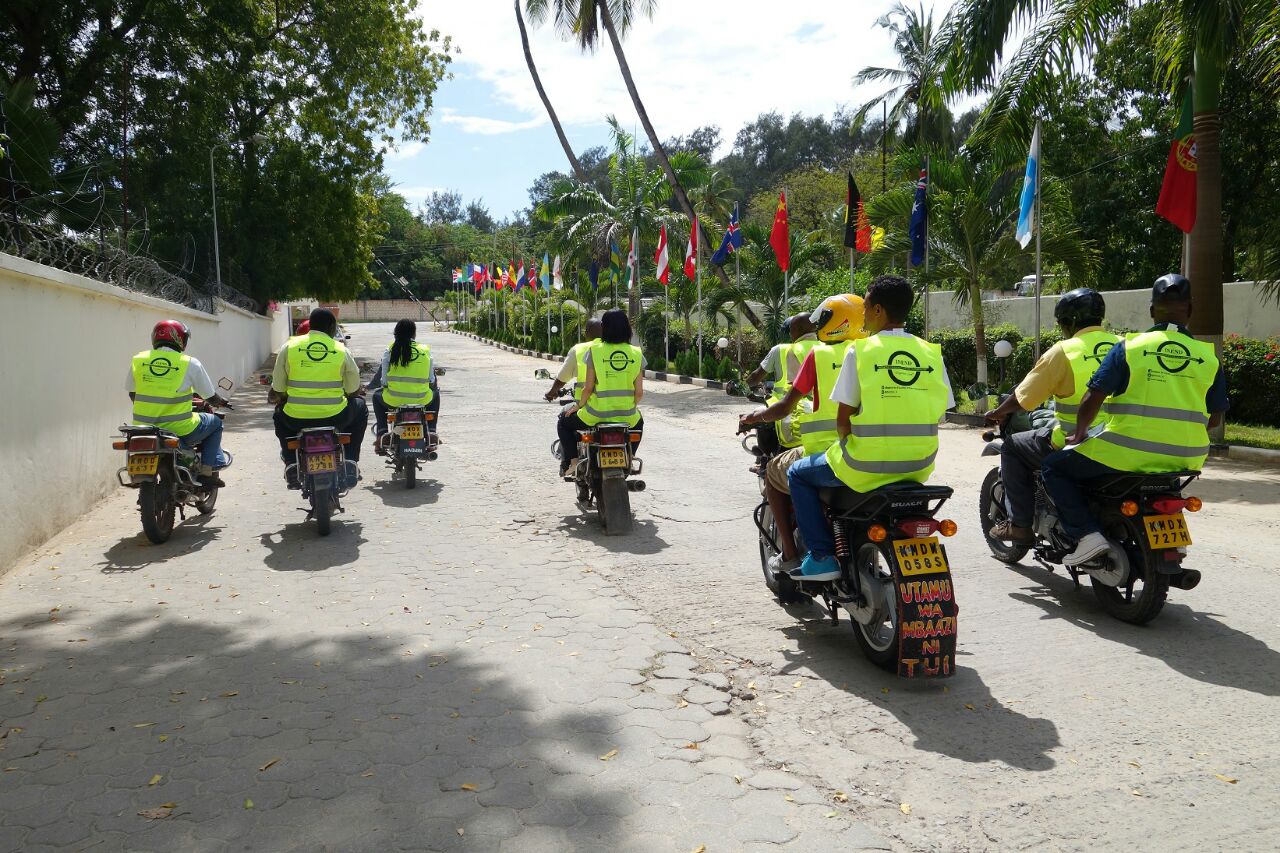
Boda boda drivers become LGBTI advocates in Kenya
The boda boda is the most common form of transportation in most of East Africa. These bicycle and motorcycle taxis criss-cross the cities and municipalities shuttling people and goods from one side of town to the other. The drivers are features of the community who connect and communicate with people from all levels of society. Unfortunately, some are also perpetrators of violence towards lesbian, gay, bisexual and transgender people. In coastal Kenya, one organisation is working with the boda boda drivers and others in the transportation sector to advocate for equality and educate the community on LGBTI rights.
The Initiative for Equality and Non-Discrimination (INEND) works to uphold the rights of LGBTI people in Mombasa City, in part by reaching out to the very members of society who are often seen as perpetrators and instigators of violence and harassment against LGBTI people. Since 2017, INEND has worked closely with drivers’ associations to train more than 350 boda boda drivers. It uses simple and relatable language, photographs, illustrations and videos to convey the experiences of LGBTI people and their families. Those drivers who have gone through the training sport special reflector vests with INEND’s logo, signalling to LGBTI people that they are allies. Many have become trainers themselves, allowing the programme to evolve into a more sustainable “train the trainer” model. The result is a formidable network of allies, supporters and change makers who ensure the protection, inclusion and participation of sexual and gender minorities in public and private spaces.
This trained network of drivers has been particularly helpful in the ongoing Repeal 162 advocacy campaign which calls for the nullification of Section 162 of the Kenyan penal code which designates homosexuality a crime punishable with up to fourteen years’ imprisonment. Boda boda drivers work alongside civil society and media partners to serve as unofficial security personnel reporting any cases of violations against LGBTI minorities while the law still stands. What’s more, they continue to advocate for the repeal by demystifying the issues within their community.
Relationships between boda boda operators and the LGBTI community have improved dramatically in Mombasa. Many say they now have the tools and the language to have open and supportive conversations with their community members and clients. “I have learnt how to live better with people deemed different by society”, said a driver from Changamwe, a suburb of Mombasa. “I no longer have the mentality that sexual and gender minorities carry a generational curse.”
Building on this success, INEND is now working with matatu minibus operators and plans to adapt the training to religious leaders, media professionals and healthcare providers.

January 2018: SRT grantee INEND at a training for trainers for boda boda (motorcycle taxi) drivers, on human rights, sexuality and religion. ©Jonathan Torgovnik
Return to grantee stories
